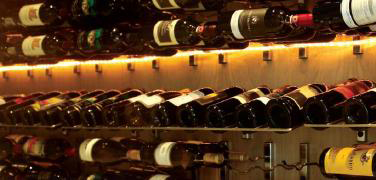Theater Rooms and Wine Cellars?
 If there’s any one theme that strings together the editorials I’ve been writing for rAVe in the past few years, it’s how important it is for AV pros to both develop effective processes, both on the jobsite and off, and to differentiate themselves from their competitors.
If there’s any one theme that strings together the editorials I’ve been writing for rAVe in the past few years, it’s how important it is for AV pros to both develop effective processes, both on the jobsite and off, and to differentiate themselves from their competitors.
In the last ten years, I’ve witnessed the AV channel’s own Boom, Bust and Echo. Prior to the global financial crisis, I watched HomeAV companies springing up like mushrooms. When builders and homeowners were awash in cash it was as Ricky Ricardo said to Lucy: “Everybody wants to get into the act!”
Following the housing crash, nearly all of the new-on-the-block AV guys vaporized. They didn’t have their act together, and when the money dried up, so did they.
The dealers who survived did so because they knew what they were doing, not just in terms of plugging one device into another but they understood their balance sheet, and they managed their company’s efficiencies.
Not only that, but most of the successful dealers differentiated themselves by providing categories and services to their clients that ran beyond the typical “cinema room and four rooms of audio” that journeyman AV companies tried to sell. Instead they plunged further into more technical things like control automation or more fun things like gaming systems and furniture.

That’s not to say that every new attempt at a new category was a success. You can’t necessarily slap businesses together like lumps of Play-Doh and expect “synergies” (whatever those are) to just happen.
The most interesting, and unusual example I can think of in terms of AV guys branching out is the companies I’ve known who parlayed their AV expertise into designing and building wine cellars.
That’s right, wine cellars. In fact you’ll find a real synergy between theater rooms and wine cellars.
Why? Well, for a start, clients in the market for either (or both!) have a lot of money. Those are the best kind of clients: The ones who want the best and are willing to pay for it.
Further, both residential and commercial clients are in the market for custom-built wine cellars. Whether it’s for a dream home or a fancy new restaurant, both kinds of customers are out there looking for a professional firm that knows what it’s doing.
From a technical perspective, both kinds of rooms require design and installation that focuses on reducing vibrations and controlling light and temperature.
Wine cellars go a step further and require humidity control, but that’s easy if you have already mastered automation.
Just as important as the materials that compose your cellar are the people who build it. As designers, you need to contract and work with skilled cabinetry builders, tile setters, electricians and other trades to ensure that every detail in your client’s cellar is taken care of exactly. That’s no different from working on whole home AV, and you should already be comfortable with that.





